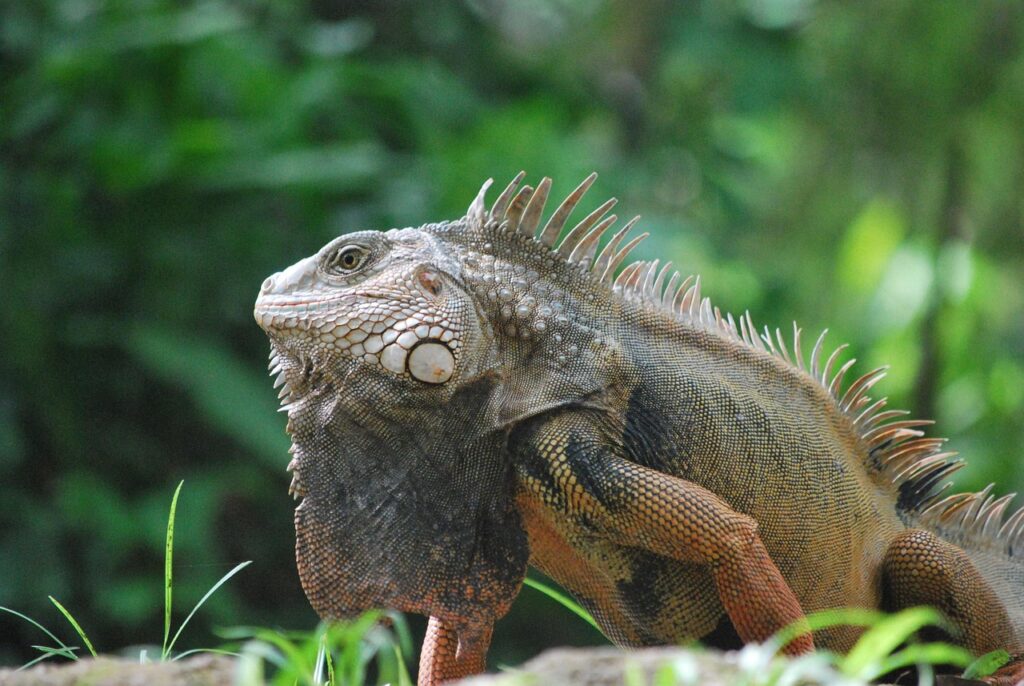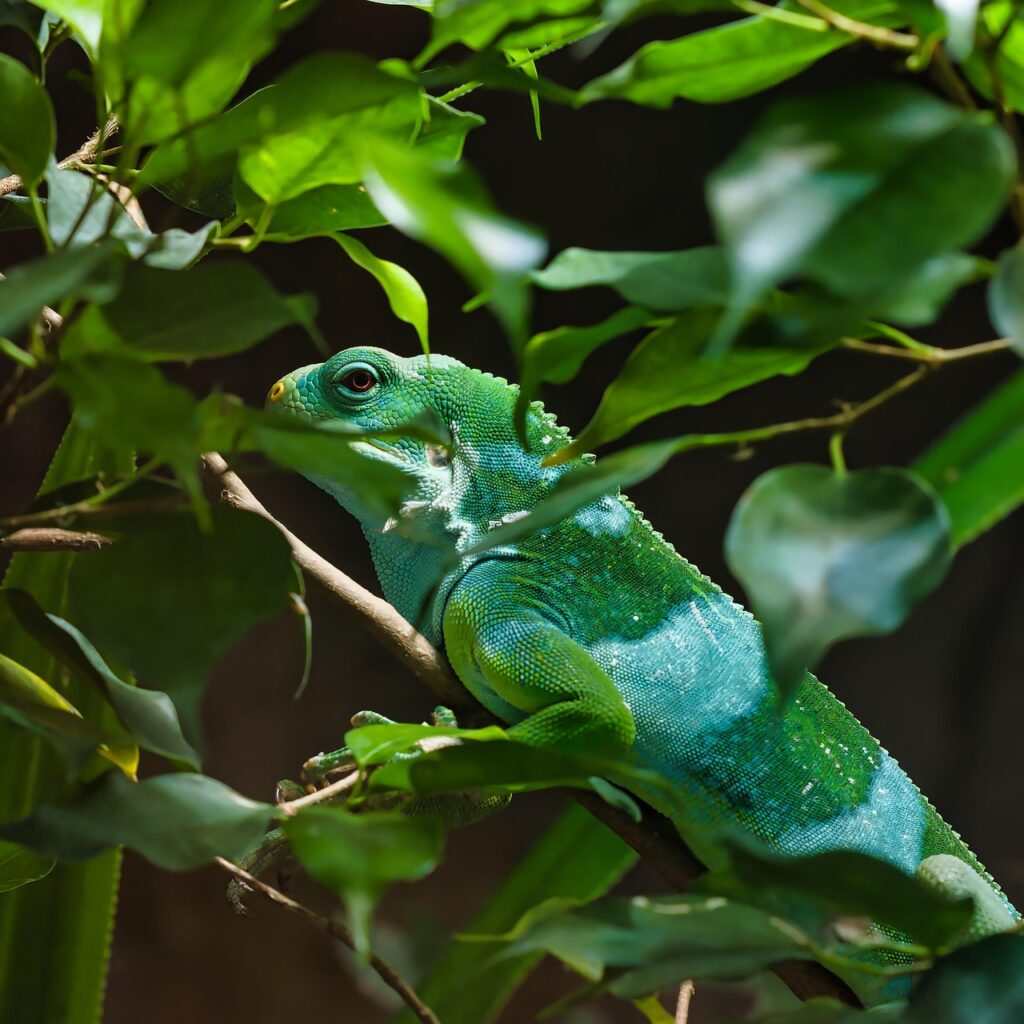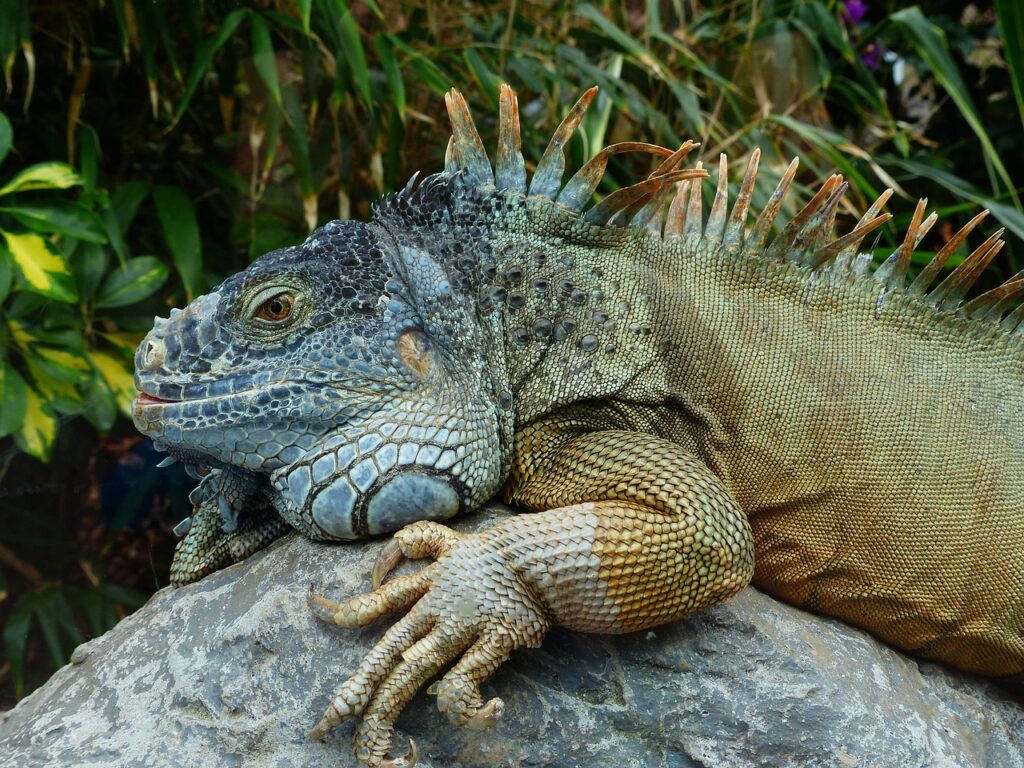Knowing if an iguana is dying can be heart-wrenching and challenging. Signs to watch for include lethargy, lack of appetite, and drastic weight loss. Changes in their poop and a decrease in movement can also signal serious health problems.

Another key indicator is changes in their skin color. If your iguana is turning dark or pale, it’s often a sign something is wrong. Unusual behavior, like hiding all the time or being very still, should not be ignored.
Recognizing these signs early can make a big difference. Regular vet check-ups are essential to catch any issues before they become critical.
Understanding Iguana Health

Taking care of an iguana involves knowing what a healthy iguana looks like, being aware of common diseases, and understanding the importance of a proper diet.
Signs of a Healthy Iguana
A healthy iguana has clear, bright eyes and smooth skin. It should be active, alert, and respond to its surroundings. Their tail and limbs should be strong and free of swelling.
Iguanas should have regular bowel movements and eat well. Their appetite is a good indicator of their health. The mouth should be free of mucus and sores.
- Eyes: Clear and bright.
- Skin: Smooth without sores.
- Movement: Active and alert.
- Appetite: Regular and healthy.
Common Diseases in Iguanas
Iguanas can suffer from various diseases, like metabolic bone disease caused by a lack of calcium and vitamin D3. Respiratory infections, often due to poor enclosure conditions, are also common.
Parasites can infest an iguana, leading to weight loss and lethargy. Kidney disease might occur in older iguanas due to dehydration or a poor diet.
- Metabolic Bone Disease: Caused by lack of calcium and vitamin D3.
- Respiratory Infections: Due to poor enclosure conditions.
- Parasites: Lead to weight loss and lethargy.
- Kidney Disease: Often in older iguanas due to dehydration.
The Importance of a Proper Diet
A balanced diet is crucial for an iguana’s health. They need plenty of greens, vegetables, and some fruits. Calcium supplementation and vitamin D3 are important to prevent metabolic bone disease.
UVB lighting helps them synthesize vitamin D3. Hydration is also key, so always provide fresh water. A diet lacking these elements can lead to serious health issues and even death.
- Greens and Vegetables: Essential for nutrition.
- Calcium and Vitamin D3: Prevents metabolic bone disease.
- UVB Lighting: Helps synthesize vitamin D3.
- Fresh Water: Necessary for proper hydration.
Identifying Signs of Illness

Knowing if your iguana is sick can save its life. Look for changes in behavior, physical symptoms, and how the environment affects its health.
Behavioral Changes
Changes in behavior are often the first signs something is wrong. If an iguana becomes lethargic or less active, it may be feeling unwell. Another key sign is a loss of appetite. A healthy iguana usually eats regularly, so if it stops eating, this is a red flag.
Stress can also show through unusual behaviors. An iguana might hide more often or seem agitated. Twitching or unusual movements can signal a neurological issue. Behavioral changes are critical indicators in spotting illness early.
Physical Symptoms
Physical symptoms often show up when an iguana is ill. Weight loss is common if they are not eating. Check for sunken eyes or signs of dehydration, such as dry skin. Discharge from the nose or mouth can indicate respiratory problems.
Skin problems like sores or unusual shedding can also be symptoms. Cloudy eyes might signal issues with vision or eye infections. Breathing heavily or showing signs of difficulty breathing are serious symptoms and require immediate attention.
Environmental Impact on Health
The environment plays a large role in your iguana’s health. Temperature and humidity need to be just right. If the habitat is too cold, they may become lethargic and inactive. Poor humidity levels can cause skin problems and make it hard for them to shed their skin properly.
Contaminated water or dirty enclosures can lead to vomiting, diarrhea, and other health issues. Dehydration is a risk if they don’t have enough fresh water. Ensure the environment is clean, warm, and humid enough to keep your iguana healthy.
Critical Response to a Dying Iguana
Recognizing that an iguana is dying can be heartbreaking. When faced with this situation, understanding when to seek veterinary care, immediate steps to comfort your pet, and available treatments and medications are crucial.
When to Seek Veterinary Care
If your iguana shows signs like lack of energy, poor appetite, or unusual behavior, it may be time to see the vet. Visible signs of illness or injury, such as tumors, wounds, or infections, also warrant immediate attention.
An iguana’s skin color can indicate stress or illness. If their color changes to a dull or dark hue, this is serious. Eye problems, breathing issues, and difficulty moving are other red flags.
Regular check-ups help prevent sickness. If you notice any of these signs, acting quickly can make a difference. The vet can provide a proper diagnosis and suggest treatment options.
Immediate Steps to Comfort Your Pet
Comfort is important when an iguana is unwell. Keep their habitat at the ideal temperature and humidity levels. Using a humidifier can help maintain the right environment.
Provide a quiet and stress-free area for them to rest. Gentle handling and minimal interaction will reduce their stress. Ensuring they have fresh water and offering their favorite foods can provide comfort.
You can also add soft bedding to their space. Keeping them warm but not overheated is key. These steps can make your iguana feel loved and comfortable during tough times.
Treatment and Medication
When it comes to treatment, follow the vet’s advice closely. Antibiotics might be necessary for bacterial infections, and antifungal medications for fungal infections. Deworming medications can address parasitic issues.
For conditions like arthritis, the vet might suggest supplements to improve mobility. Impaction, a common problem, may require specific treatments to clear blockages. Carefully follow instructions for administering medication.
If the iguana needs surgery for tumors or other serious issues, the vet will guide you. Always monitor your pet’s response to treatment and report any changes. Timely and proper care can sometimes save a dying iguana.
Preventive Measures and Regular Care
Taking care of an iguana involves providing a healthy environment, routine health checks, and a proper diet. These steps help prevent illnesses and ensure your pet thrives.
Creating a Healthy Living Environment
Temperature: Iguanas need a warm, consistent environment. The temperature should range between 75°F to 85°F during the day, with a basking area up to 95°F. At night, it can drop to 70°F. Use heat lamps and heating pads to maintain these temperatures.
Humidity: Proper humidity levels are crucial. Aim for 70% to 80% humidity. Use a misting system or a humidifier to keep the habitat moist. This helps prevent respiratory distress and skin issues.
Lighting: Iguanas need UVB lighting for 10-12 hours daily. This helps them produce Vitamin D3, which is essential for calcium absorption and preventing metabolic bone disease.
Clean Environment: Keep the enclosure clean by removing waste daily and disinfecting surfaces weekly. This reduces the risk of parasites and infections.
Routine Health Checks
Observation: Regularly monitor your iguana’s behavior and appearance. Look for signs of distress, like loss of appetite, runny stool, or isolation.
Weight Check: Weigh your iguana monthly. Unexpected weight loss can indicate health problems.
Inspect for Injuries: Check for open wounds, lesions, or any injuries. Untreated injuries can lead to infections.
Bowel Movements: Monitor for any abnormal bowel movements. Changes can signal digestive issues or parasites.
Veterinary Visits: Schedule regular check-ups with a vet experienced in reptile care. They can spot early signs of illness and provide vaccinations if needed.
Diet and Nutrition
Balanced Diet: Iguanas are primarily herbivores. Feed them a variety of leafy greens like collard greens, mustard greens, and dandelion greens. Avoid high-oxalate veggies like spinach and beets.
Calcium Intake: Provide a calcium supplement, especially without phosphorus, three times a week. This helps prevent calcium deficiency and metabolic bone disease.
Hydration: Ensure your iguana drinks plenty of water. Provide a shallow dish of clean water daily and mist their food with water.
Hand Feeding: If your iguana is ill or in distress, hand feeding can ensure they get enough nutrients. Use a syringe for feeding pureed fruits and vegetables if necessary.
Summary
Following these preventive measures and regular care steps will help keep your iguana healthy, happy, and thriving. Remember, the key is consistency and attentiveness to your pet’s needs.
